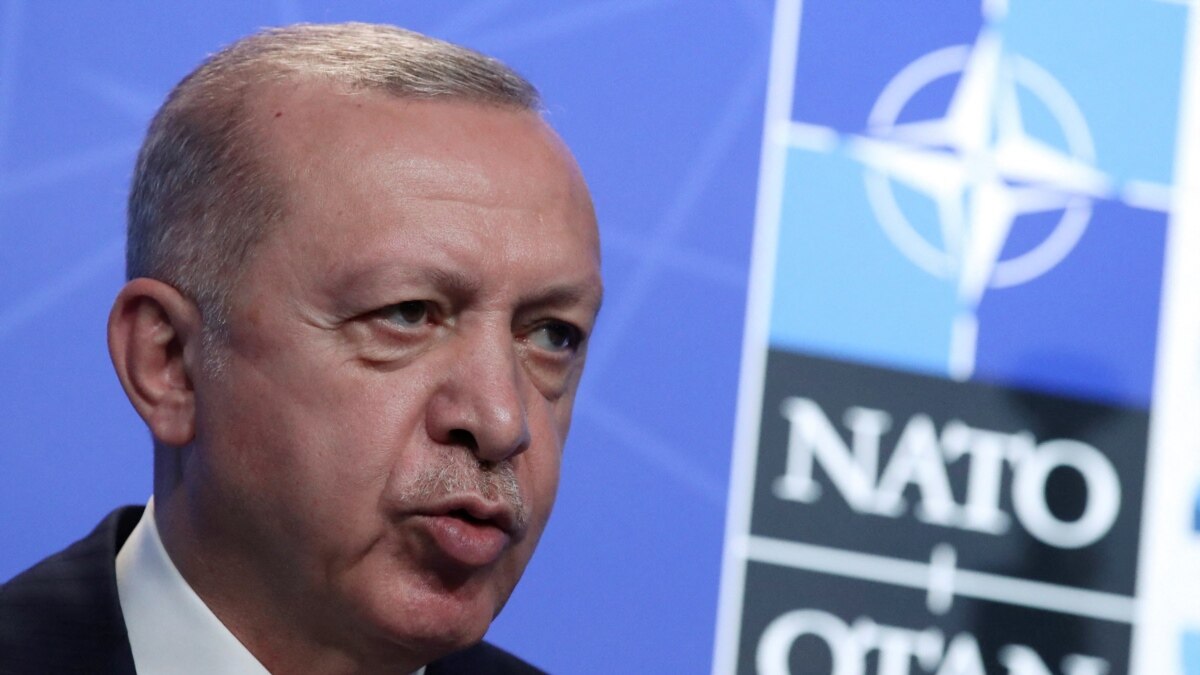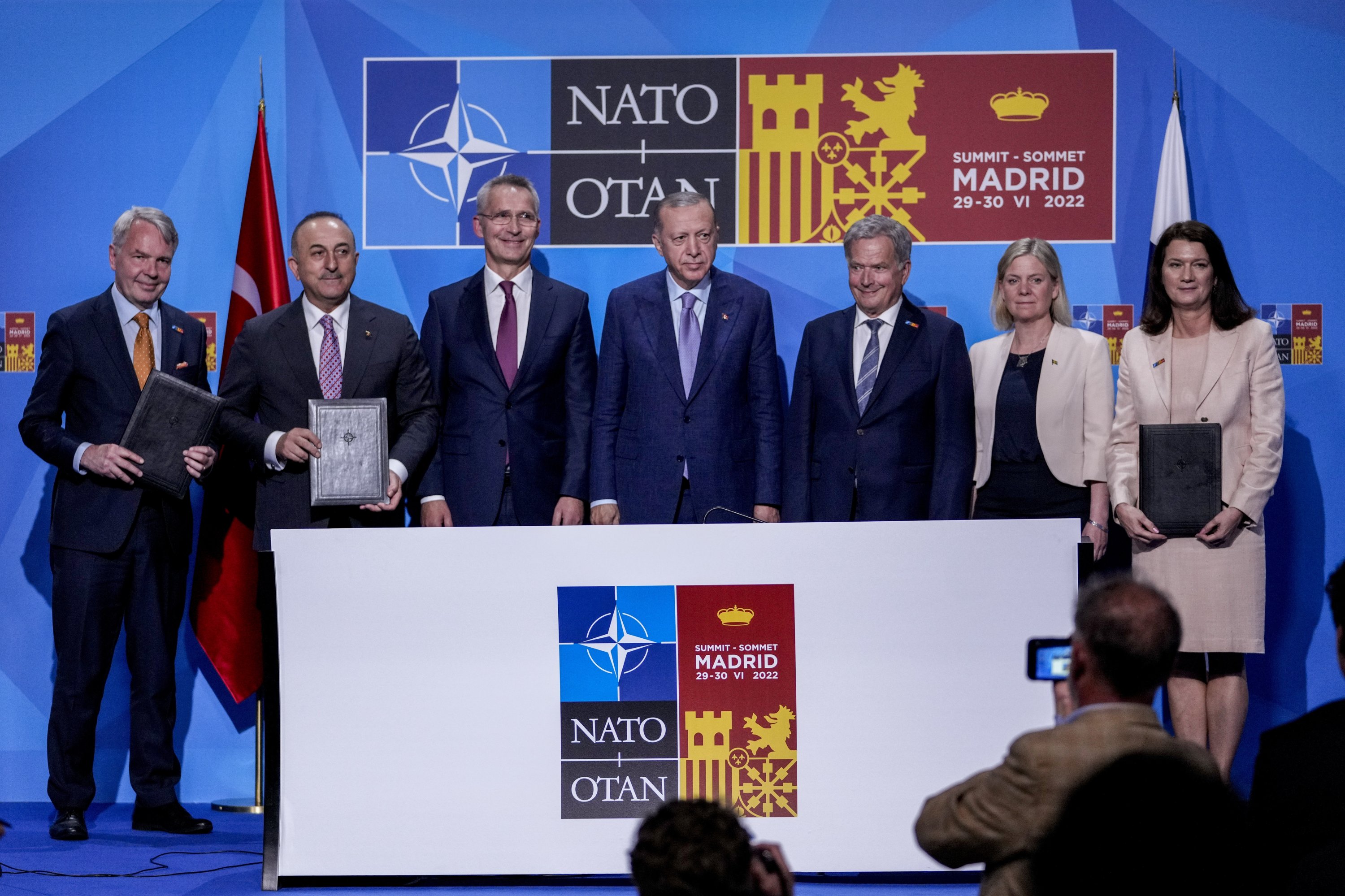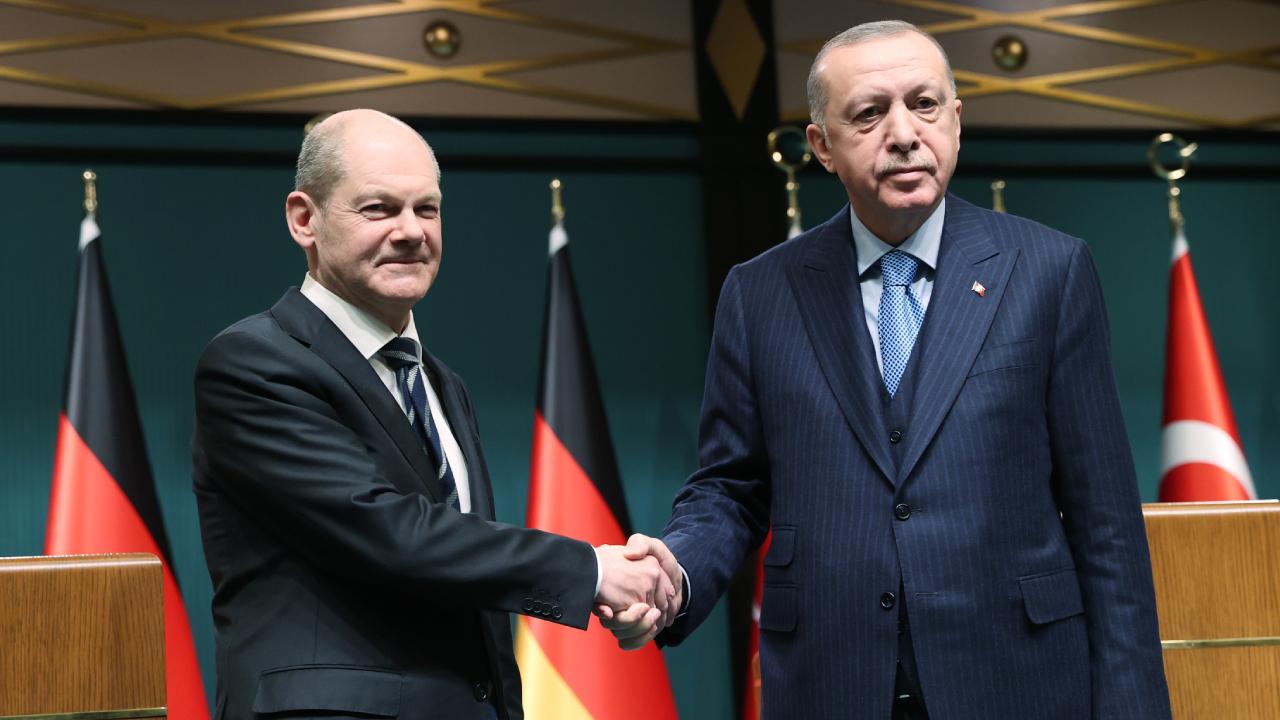After the NATO Summit: What Are Erdogan’s Achievements?

Turkiye scored a diplomatic win at the NATO summit, where it struck a deal with Sweden and Finland to lift its veto on their bid to join the alliance.
Ankara had been blocking the two Scandinavian countries from joining NATO for weeks, demanding concessions on its fight against “terrorism” by the Kurdistan Workers’ Party (PKK), a Kurdish militant group that Turkiye considers a threat to its security.
President Recep Tayyip Erdogan of Turkiye had previously said that he did not view Finland and Sweden’s entry into NATO favorably, accusing them of harboring “terrorist organizations” that have ties to Kurdish militias in Syria and Iraq, such as the Syrian Democratic Forces and the PKK.
Turkiye wanted security guarantees from Finland and Sweden if they wanted to clear the hurdles for their NATO membership, and that is what it got.
In Madrid, Turkiye signed a memorandum of understanding with Sweden and Finland to enhance cooperation on countering “the activities of terrorist organizations,” according to a joint statement.
The memorandum also stipulated that Finland and Sweden would “commit to preventing the activities of the Kurdistan Workers’ Party and all other terrorist organizations and their extensions, as well as the activities of individuals associated with those terrorist organizations.”
Moreover, Helsinki and Stockholm agreed to lift the arms embargo they had imposed on Turkiye after its military operations against Kurdish fighters in Syria in recent years.
Double Win
Turkiye’s gains were not limited to Sweden and Finland. After Ankara lifted its veto on the two countries’ NATO membership, the Biden administration also announced its support for a potential sale of F-16 fighter jets to the Turkish military.
Washington said that it backed Turkiye’s modernization of its fighter fleet, as it would “contribute to Atlantic security and thus American security.”
The United States welcomed the agreement, which was signed in Ankara, as a boost to Western unity and security.
Turkiye “got what it wanted from talks with Sweden and Finland,” a State Department spokesperson said, adding that Washington was working with the Turkish side to clarify its position on Finland and Sweden’s accession process to NATO.
The deal came amid heightened tensions between Russia and the West over Ukraine, where Moscow has amassed troops near the border and threatened to invade.
Turkiye, a key NATO ally, has leveraged its strategic position between the two camps to advance its interests and assert its influence.

Osama Fouad, a researcher in international relations, told Al-Estiklal that Turkiye’s gains were multifaceted.
“Some of them are related to extracting recognition from the West that Western support for organizations classified by Ankara as terrorist has become a problem in relations,” he said.
“In the past, Westerners ignored these Turkish grievances and believed that relations could continue in any case. But circumstances are changing now,” he added.
Fouad noted that the agreement would open the door for a dialogue between Ankara and the West on ways to reshape relations on a new basis that meets the interests of both parties.
“Turkiye is an important country in NATO and has an interest in NATO being strong. This strength comes first from addressing differences between NATO members before anything else,” he mentioned.
As part of the deal, Turkiye also demanded that Finland and Sweden hand over 33 people that Ankara accuses of belonging to the Kurdistan Workers’ Party (PKK) or the Fethullah Gulen group, both of which are designated as terrorist organizations by Turkiye.
However, the Swedish Prime Minister, Magdalena Anderson, said that her country would not hand over any Swedish citizen and would follow Swedish law and international agreements regarding extraditing criminals.
She also said that she would clarify to Turkiye how to fight terrorism within the framework of international laws.
Fouad said that the issue of extradition might face some legal obstacles, especially in Sweden, despite pledges to work on amending anti-terrorism laws.
“But these pledges will most likely face strong opposition in the Swedish parliament,” he said.
“Ankara probably realizes that all these commitments may not be fulfilled, but what it seeks first and foremost is to push the West to adopt a different approach with it when it comes to combating terrorism.
“The process of Finland and Sweden joining NATO will take time and require parliamentary ratification by member states, and that will be a pressure factor on both countries to show their seriousness in implementing their commitments,” he concluded.

Why Change Position?
Erdogan’s change of heart was the result of a combination of opportunities offered by the United States, Canada, and Sweden, as well as his own calculations about Turkiye’s regional interests and ambitions.
The main opportunity was a lucrative deal for F-16 fighter jets that President Biden had dangled in front of Erdogan as an incentive to drop his opposition to Sweden’s NATO membership.
The deal, worth $20 billion, would provide Turkiye with 40 new planes and upgrade 79 existing ones, as well as supply more than 900 missiles and 800 bombs, according to a separate person briefed on the details.
Biden had raised the possibility of the deal in a phone call with Erdogan in May, shortly after the Turkish leader secured another five-year term in a disputed election.
The two leaders had several follow-up conversations and delegated their top diplomats, advisers, and intelligence officials to hammer out the specifics.
Another opportunity came from Canada, which agreed to lift an arms embargo on Turkiye that it had imposed in 2019 in response to Turkiye’s military intervention in northern Syria.
The embargo had prevented Canada from selling optical devices for drones to Turkiye, a key component of its expanding drone industry. Canada softened its stance after high-level talks with Turkiye in June 2020.
But the negotiations were not smooth sailing. A new crisis erupted when Swedish authorities allowed a protester to burn a Quran in Stockholm on the first day of Eid al-Adha, a major Muslim holiday.
The incident provoked outrage from Erdogan and his government, who accused the West of hypocrisy and double standards on freedom of expression and religion. It took four days for Sweden to denounce the Quran burning.
Sweden also tried to sweeten the deal by pledging to support Turkiye’s stalled efforts to join the European Union, including updating the customs union between Turkiye and the bloc and easing visa procedures.
Erdogan also met with Charles Michel, the president of the European Council, who promised to prepare a report on the state of Turkish–European relations based on a mandate from the bloc’s leaders. Eventually, Erdogan relented and agreed to Sweden’s accession.
But it was unclear whether Erdogan had received any assurances from Chancellor Olaf Scholz of Germany or President Emmanuel Macron of France on Turkiye’s EU prospects during the NATO summit in Vilnius, Lithuania.
Scholz said he would discuss Turkish–European relations with Erdogan during a bilateral meeting on the sidelines of the summit.

U.S. Unclear Position
Senator Bob Menendez of New Jersey, the chairman of the Foreign Relations Committee, who had played a leading role in blocking fighter sales to Ankara, said he had noticed a decrease in Turkiye’s hostility toward its neighbors and that he would talk with the Biden administration about the conditions he would impose on the deal.
Officials said they expected Biden to face little resistance from Congress after Turkiye’s parliament ratifies Sweden’s NATO accession next week.
The U.S. administration also plans to offer an F-35 sales proposal to Greece along with the Turkish deal to appease skeptics in Congress.
Turkiye, which had been wary of its relations with Greece, recently decided to start joint confidence-building measures with its neighbor.
Officials believe Biden will not face difficulty getting congressional approval after Turkiye’s parliament ratifies Sweden’s NATO accession next week.
The U.S. administration also plans to offer an F-35 sales offer to Greece along with the Turkish deal to appease skeptics in Congress.
It is worth noting that Ankara, which was cautious in its relations with Athens, recently decided to start joint confidence-building measures.











